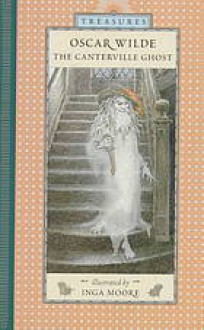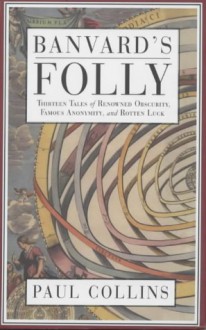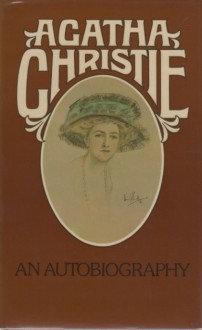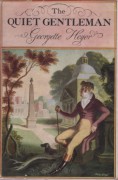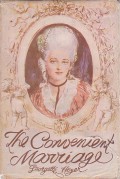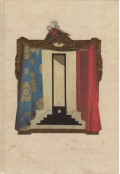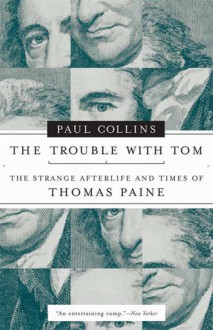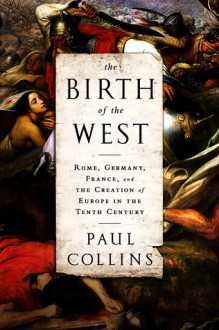
TITLE: The Birth of the West: Rome, Germany, and the Creation of Europe in the Tenth Century
AUTHOR: Paul Collins
DATE PUBLISHED: 2014
FORMAT: Paperback
ISBN-13: 978-1-61039-368-3
_____________________________________
Tenth century Europe may have been a chaotic mess, but Paul Collins believes that the process which ended in the Renaissance and Enlightenment had its beginnings in the tenth century Europe. Collins attempts to show how various individuals (e.g. the 3 Ottos and Gerbert d'Aurillac/Pope Sylvester II) injected vigour into the Holy Roman Empire, reorganised the Church and bring some semblance of order to the State.
The book (briefly) covers the breakup of Charlemagne's Empire in the mid-800's; the development of France under Viking invasions and settlement into a large number of smaller semi-independent regions; and the solidification of a Germanic Holy Roman Empire during the 10th century under the Saxon kings Otto I, II, III. It also follows the development of Roman Catholicism and the Papacy. There is also a fairly decent description of monastic life, as well as the role of monasteries and religion in the lives of ordinary people.
Collins weaves a sometimes convoluted narrative, starting somewhere in the middle, going back to the beginning, discussing historical events, then focusing on individuals in a biographical manner, hopping around different regions in Europe from Spain and Britain to Byzantium. The first chapter was a bit tedious but the pace of the narrative picked up by the second chapter and the story became more interesting. There are a few maps in the book but I would have preferred a few more. I would also have found a timeline useful. A more structured approach would also have been more useful as well as more analysis. The author dropped the ball a few times by failing to connect his various chapters to the main thesis of the book, making this something of a collection of juicy facts but failing to show how they relate to the birth of the west.
I would not recommend this book to the history novice but it may prove interesting to someone who has some familiarity with events after Charlamagne.

 Log in with Facebook
Log in with Facebook 

